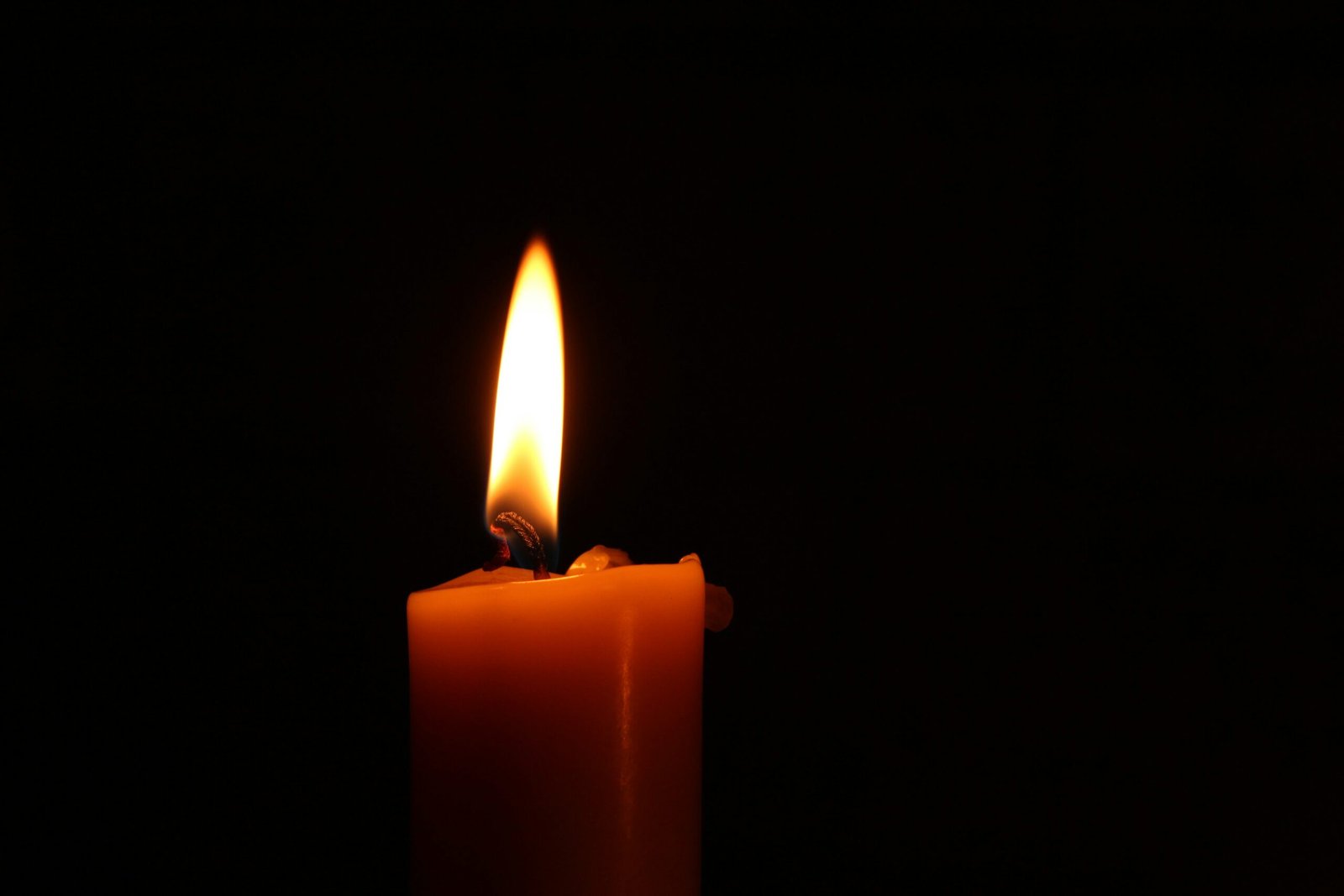
Gospel according to Saint Matthew 24:37-44
Jesus said to his disciples, “For as it was in the days of Noah, so it will be at the coming of the Son of Man. In those days before the flood, they were eating and drinking, marrying and giving in marriage, up to the day that Noah entered the ark. They did not know until the flood came and carried them all away. So will it be also at the coming of the Son of Man. Two men will be out in the field; one will be taken, and one will be left. Two women will be grinding at the mill; one will be taken, and one will be left.
Therefore, stay awake! For you do not know on which day your Lord will come. Be sure of this: if the master of the house had known the hour of night when the thief was coming, he would have stayed awake and not let his house be broken into. So too, you also must be prepared, for at an hour you do not expect, the Son of Man will come.”
Hope in hopeless times
Luis CASASUS President of the Idente Missionaries
Rome, November 30, 2025 | First Sunday of Advent
Is 2: 1-5; Rom 13: 11-14a; Mt 24: 37-44
We all know that the word “Advent” means arrival, coming. It is a dynamic term; our union with Christ is not a story that ends at a certain point, as if it were a matter of obtaining a driver’s license or a university degree. It is generally said that there are three comings of Christ: his birth in Bethlehem, the “intermediate coming,” as St. Bernard of Clairvaux said, an invisible coming, in the heart, and finally, the final coming that nourishes our hope in the consummation of eternal life.
It is clear that the first and last comings must be the necessary object of our contemplation, for they are more than specific past or future events. But we have a special responsibility for the “intermediate comings,” for they are personal and always different; they always have a content and meaning that unite us directly and immediately to the Divine Persons.
Advent illuminates a feature of prayer that was particularly visible in Jesus Christ: its preventive character, its preparatory sense of welcoming the divine visit. Our Father Founder instructed us on this dimension of the Gospel Spirit, which leads us to draw closer to God not only in moments of distress, helplessness, temptation, or during the storms of the passions, but also on occasions when we are immersed in our usual activities, at rest, or engaged in tasks as normal as they were in Jesus’ time, such as working in the fields or at the mill.
Let us recall a famous episode in the life of Saint Martin of Tours. The event took place around the year 335. As a member of the imperial guard, the young soldier was often sent on night patrols. On one such patrol during the winter, he came across a half-naked beggar while riding his horse. Martin felt compassion for him, took off his cloak, cut it in two, and gave one half to the poor man. The following night, Jesus appeared to him in a dream, dressed in the part of the cloak that had sheltered the poor man, and said to the angels: Behold Martin, the Roman soldier who is not baptized: he has clothed me.
Although the example of St. Martin may seem very particular to us, it captures the unexpected and provocative nature of every intermediate coming, as well as the role of our neighbor as a “living sign” to alert us to that intimate advent.
Returning to the preventive dimension of prayer, we must recognize that we pay close attention to preparing for events that arrive at special moments in our daily lives, such as receiving guests in our home, a job interview, or the birth of a child in the family. But not doing so at the beginning of each day, knowing that we do not know what Providence will ask of us or how difficulties may weaken our best intentions, is proof of the weakness of our faith.
The best example of this prayer is that of Jesus in Gethsemane (Mt 26:36-41) before he was arrested. When he withdraws to pray, he says to his disciples: Watch and pray, lest you enter into temptation. The spirit indeed is willing, but the flesh is weak.
This prayer is not said in the midst of a trial, but before it comes, as spiritual preparation. It even has the meaning of being ready for unexpected situations that may assail us, or of being alert to the subtle suggestions of the Holy Spirit.
In Gethsemane, the disciples are overcome by sadness and physical exhaustion. Even so, they dare to trust in their own strength. Moments before, Peter had arrogantly said, Lord, I am ready to go with you to prison and to death! (Luke 22:33).
Having failed to pray preventively, the disciples’ spiritual defense system is null and void. Their response to the crisis is a disaster and—as happens to us—we react as slaves to our character and our instincts. On this occasion, we see three rather sad attitudes:
* Violence: Peter draws a sword and attacks a servant. An impulsive act, not at all spiritual.
* Flight: All the disciples, seeing Jesus arrested, scatter and flee.
* Denial: Peter, the most self-assured, denies three times that he knows Jesus.
There is a surprising moment in the Old Testament where we see Nehemiah insisting and persevering in this preventive prayer (1 Sam. 23:1-5):
When David was told that the Philistines were attacking Keilah and plundering the threshing floors, David consulted the Lord: May I go and attack these Philistines?
The Lord replied, Yes, defeat the Philistines and rescue Keilah.
But his men said to him, Look, if we are afraid here in Judah, how much more so if we go to Keilah to fight the Philistine army.
David consulted the Lord again, and the Lord replied, Go to Keilah, for I will deliver the Philistines into your hands. So, David and his men went to Keilah, attacked the Philistines, inflicted a heavy defeat on them, and carried off their livestock.
At the Last Supper (Luke 22:31-32), Jesus gives Peter a perfect example of preventive intercessory prayer: Simon, Simon, behold, Satan has demanded to sift you like wheat. But I have prayed for you, that your faith may not fail.
Jesus knew that Peter would fall, denying him, but Jesus’ preventive prayer was not to prevent Peter from falling, but to ensure that his faith would not “fail” permanently. It was a prayer to ensure that, after the fall, Peter would have the grace of repentance and could return to his path and strengthen his brothers.
The disciple of Christ does not pray preventively to avoid trials, but to have the strength not to be destroyed by them.
—ooOoo—
Let us not lose sight of the message of the First Reading: The truly preventive prayer of a prophet like Isaiah invites the people of Judah to look to the future with serenity and perseverance, despite being under constant threat from the Assyrians. It was also a difficult time, marked by corruption and social tensions, making it hard to believe that God would not abandon his people, and so many turned to idols and reliance on their own strength.
Something similar happens to each of us, even though our times and our culture are very different; we do not recognize the gifts we have received from God and therefore we are unable to live with hope: there are many types of abandonment of vocation, loss of enthusiasm in the face of difficulty and, essentially, little hope.
The ingenious English writer G. K. Chesterton (1874-1936) said: Hope means waiting when the situation is hopeless; in other cases, it is no virtue at all. In truth, preventive prayer disposes us to receive the gift of fortitude that makes our hope grow.
Also in the Second Reading, St. Paul calls us to “awaken from sleep,” from what seems most real and is only temporary, even if it is deep pain or pleasant and seductive comfort. Let us not forget that, before facing the hardest moment of his life, Jesus did not hesitate to resort to prayer: My soul is sorrowful even unto death. Stay here and keep watch with me (Mt 26:38).
The conclusion of today’s Gospel is filled with the hope of Advent. It may seem threatening, comparing the Lord’s actions to the behavior of a thief who seeks to surprise us, but it is one of the forms of expression used in the spiritual literature of that time to make us see how easy it is to miss the opportunity to be saved right now, that is, to be able to live a full life, instead of falling victim to pessimism or disappointment. The Gospel, by definition, is “Good News” and always invites us to look further.
When Jesus refers to the times of the Deluge, he does not mention the wickedness of people or their sins, but focuses on their unconsciousness and lack of sensitivity, absorbed by the cares, problems, and difficulties of life. Just as happens to us today.
As the First Reading says, living in prayer is comparable to the effort of climbing a mountain, but the reward is guaranteed: Let us go up to the mountain of the Lord, to the house of the God of Jacob. He will teach us his ways. The teaching of today’s Gospel text is not only about the end of time, but also about how to live each day prepared, with faith and responsibility.
Today’s Gospel describes moments in the life of Jesus with his disciples, when they gazed in admiration at the beauty of the Temple; but once again, the Master makes them look further.
Let us end with a story, albeit a somewhat “mundane” one, to remind us that the unexpected happens, and only those who are ready can face it with peace.
In a big city, life went on as usual. People went to work, children went to school, shops opened their doors. Everything seemed routine, predictable.
One night, without warning, a massive power outage left the city in complete darkness for two days. Traffic lights went out, trains stopped, communications were cut off. Many were trapped in elevators, others in the subway. Most were unprepared: they had no flashlights, water, or emergency plans.
However, some families who had thought ahead about the possibility of a power outage—stocking up on candles, batteries, and basic food items—were able to cope calmly and even help others. While some were confused and desperate, they had light in their homes and serenity in their hearts.
_______________________________
In the Sacred Hearts of Jesus, Mary and Joseph,
Luis CASASUS
President












